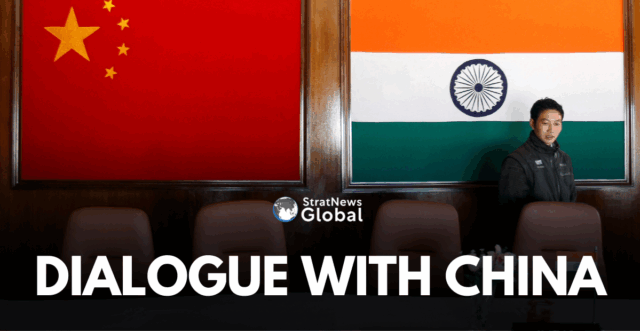There is an emerging view in some circles in India that, given the difficulties with Donald Trump on tariffs, this may be the best time to explore an understanding and dialogue with China. Former foreign secretary Vijay Gokhale, in an editorial in The Times of India on Tuesday, has articulated this view, arguing that:
“As India’s relations with the US, its most consequential partner, enter a difficult period, China is beginning to look better than at any time in the previous five years.”
“The Chinese media is in full throttle,” he writes, “on the new dance between the dragon and the elephant. Rebalancing the relationship after recent tensions is important, but Indians must develop a nuanced view of China instead of looking at it in black and white terms.”
Do note, however, that China’s view of India as a country inferior to it in political and economic power may have even hardened given the problems with Trump. The impasse over trade has underscored India’s lack of leverage, which is why another former foreign secretary, Shyam Saran’s views are important:
“Their (China’s) posture towards India is indicative of where they stand. Now, their approach is to let India know that we are not in the same league as them and the sooner we realise this, the better.”
Dealing with this attitude is a challenge, but not something which India has not experienced before.
Professor Alka Acharya, Chairperson of the Centre for East Asian Studies at Jawaharlal Nehru University, believes an uninterrupted dialogue with China is what is needed.
“The dialogue between India and China is fractured; it gets bogged down in several issues which should not interfere with the bilateral dynamics,” she said during a recent conference in Delhi. The two countries engage at the BRICS, SCO, the G20 and even the Asian Infrastructure Investment Bank.
More controversially, China’s presence in India’s neighbourhood is a fact and a challenge for India.
“China is present all over your neighbourhood. What is the practical thing to do … that if you engage with China as far as your neighbourhood is concerned … we open ourselves to the possibility of dialogue not just directly with China … we are actually working towards addressing or reducing the scope for China to play games with us,” Prof Acharya says.
Saran’s view is different.
“Although we have said neighbourhood first policy, the kind of investment which is required to actually make that happen is unfortunately still missing,” he regrets.
India has not yet made investments that make it a net security provider, the engine of growth and the transit country of choice to its neighbours. He suggests that these are the kind of things which will give us a stable periphery; otherwise, China will fill the gap.
He notes that India has always tried to engage with China, and the visit of Foreign Minister Wang Yi next week will provide opportunities in that direction.
“We have to see in which areas there are possibilities for us being able to establish a positive relationship. This depends not only on India but also on China.” As he says, it takes two to dance.





